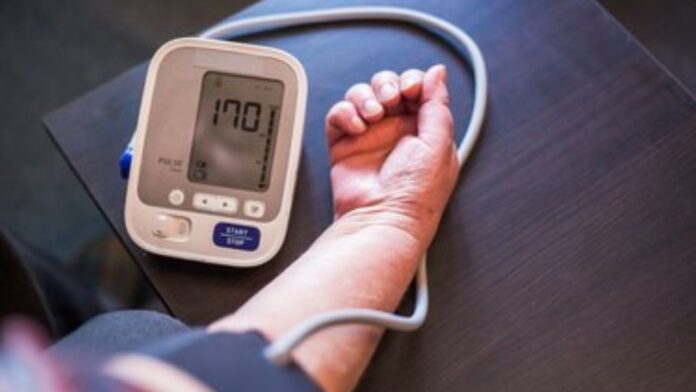Hypertension earns its moniker as the “silent killer” for good reason. Prolonged high blood pressure can disrupt bodily functions, elevating the risk of severe diseases such as heart attack, stroke, and kidney failure. The absence of noticeable symptoms in many individuals with high blood pressure makes regular monitoring crucial, particularly as one ages.
Symptoms like headaches, shortness of breath, blurred vision, nosebleeds, dizziness, and chest pain may indicate high blood pressure. Given that its impact is not always immediately apparent, proactive measures are essential to mitigate its silent consequences. Regular blood pressure monitoring, embracing a heart-healthy lifestyle, and seeking timely medical attention are pivotal in managing hypertension.
Here are five ways hypertension affects the body:
- Cardiovascular System: Hypertension strains the heart, compelling it to pump blood against increased resistance. This pressure leads to thickening of the heart muscles (left ventricular hypertrophy), elevating the risk of heart failure. Constant pressure damages blood vessels, fostering atherosclerosis and increasing the likelihood of heart attacks and strokes.
- Brain Health: Hypertension plays a significant role in cerebrovascular diseases. Elevated blood pressure damages delicate brain blood vessels, escalating the risk of stroke. It is a key contributor to vascular dementia, impacting cognitive function and memory.
- Kidney Damage: The kidneys, vital for blood pressure regulation, can be compromised by persistent hypertension. Chronic kidney disease can develop over time, impairing the organs’ ability to filter waste and maintain electrolyte balance.
- Eyesight Impairment: High blood pressure damages small blood vessels in the eyes, leading to hypertensive retinopathy. This condition can cause vision problems and, if untreated, may result in permanent vision loss.
- Peripheral Arterial Disease: Hypertension accelerates atherosclerosis, causing arteries to narrow and harden due to plaque buildup. This affects not only coronary arteries but also those in the limbs, resulting in peripheral arterial disease. Reduced blood flow to the extremities can cause pain, slow wound healing, and heighten the risk of infections.

 हिंदी
हिंदी






